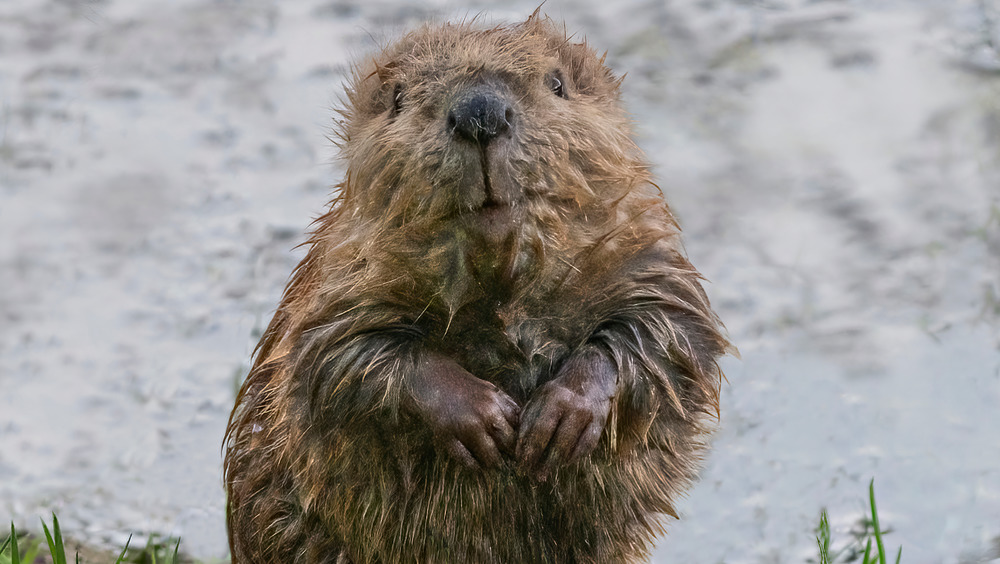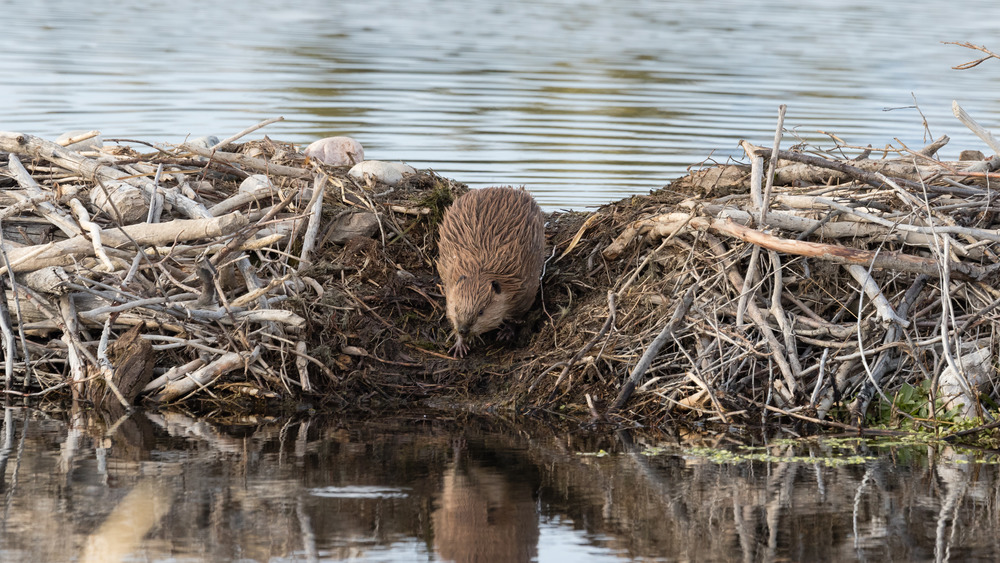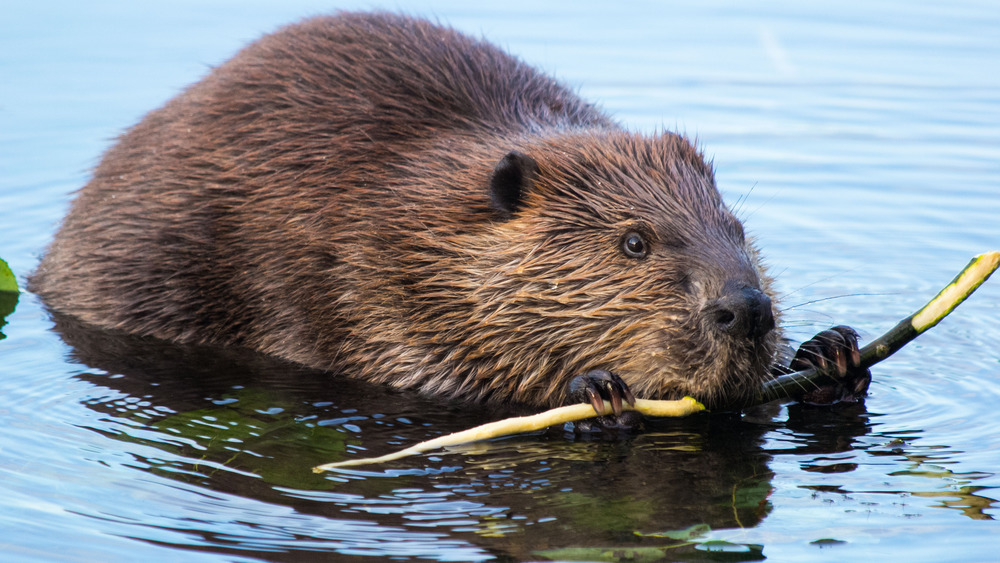The Surprising Animal That Helps Control Flooding And Pollution
Humanity has been a scourge on the environment since probably the dawn of time. As a species, humanity burned down forests to create farmland, and has committed genocide which affected the climate.
But Mother Nature has created a way for nature to fix things. Just look hard enough, and you will find an animal that can mitigate much of the damage we humans have done. What animal, you ask? It's one that's unexpected, since it generally does the same thing as humans — build dams in rivers. Yes, it's the beaver.
The United Kingdom undertook a five-year study to learn if it should reintroduce beavers to the wild to help control flooding and pollution. The Guardian reported the University of Exeter undertook the study after several beavers were found living in the wild in Devon. People were surprised that beavers existed in the UK at all. Hunters killed beavers to extinction in the country almost 400 years ago, and these were regular beavers, not the giant beaver. After all, beavers had been prized for their pelt that was eventually made into coats and top hats, which was the craze in North America in the 1800s.
Before the study, officials in Devon planned to exterminate the animals, but the public protested, and they were saved. People said the beavers just wanted to help, plus they're pretty cute. The government decided that if the beavers could prove to have a use, they could stay. And that's when researchers from the university stepped in.
Beaver dams are fantastic
Beavers used to be prevalent all over England. But after the fur craze, many saw the animals as pests — some said the dams created ponds, which covered farmland. After several centuries, wild beavers began cropping up all over the country, said the UK's Environment Agency. The number of beavers in the world, though, has not reached the numbers it had before the 1800s.
Beavers are river-dwelling creatures. They have webbed feet, and a broad tail that allows them to swim fast against the currents, said the BBC's Newsround. Sure, they have these long front teeth that stick out of their mouth, but it looks adorable. They use those teeth to chew down trees, which they then use to build dams. Unlike manmade dams, however, beaver dams do not entirely disrupt a river's flow. Instead, it just creates a sort of pond, as the National Park Service explains. This is where the beavers build their lodges, the habitat where they live. The ponds provide protection for beavers and other animals against predators like coyotes and wolves.
Beaver dams, because they are made from mud, trees, and twigs, tend to be leakier than human-made barriers created from concrete. According to the study by the University of Exeter, the dams redirect water from the rivers to wetlands away from populated villages. The ponds created by the beaver dams also increase biodiversity in the area.
More beavers are coming to the wild
The researchers saw that over the five years they studied the beavers, fish in the pools increased 37 percent. The ponds attracted more birds to the area. The dams also filtered pollutants in rivers.
Of course, there were still some downsides to beaver dams. The study noted one potato field was flooded, and some riverside orchards were in danger. Farmers wanted to have some protections, and the government did install so-called "beaver deceivers," which were pipes that carry water through dams to control flooding, said The Guardian. Overall, however, the study showed the benefits of beavers far outweighed the negatives and recommended that beavers be slowly reintroduced to the environment.
While the beavers in Devon escaped from captivity — that's why they were found in the wild — the UK's Environment Agency sourced a pair of beavers from Devon and brought them to Essex. The hope is that slowly bringing beavers to some areas could increase biodiversity, filter pollutants, and control flooding. The Essex beavers live on an historical estate and will have plenty of trees to chomp down on. Other areas in the UK are also planning to reintroduce beavers to the wild following the study.
And well, beavers could also bring indirect benefits to the counties through tourism. A more biodiverse river and wild areas bring different animals that can attract nature-loving people. So even though humanity polluted the land and hunted them to extinction, beavers can help us more than we thought — if we let them.


